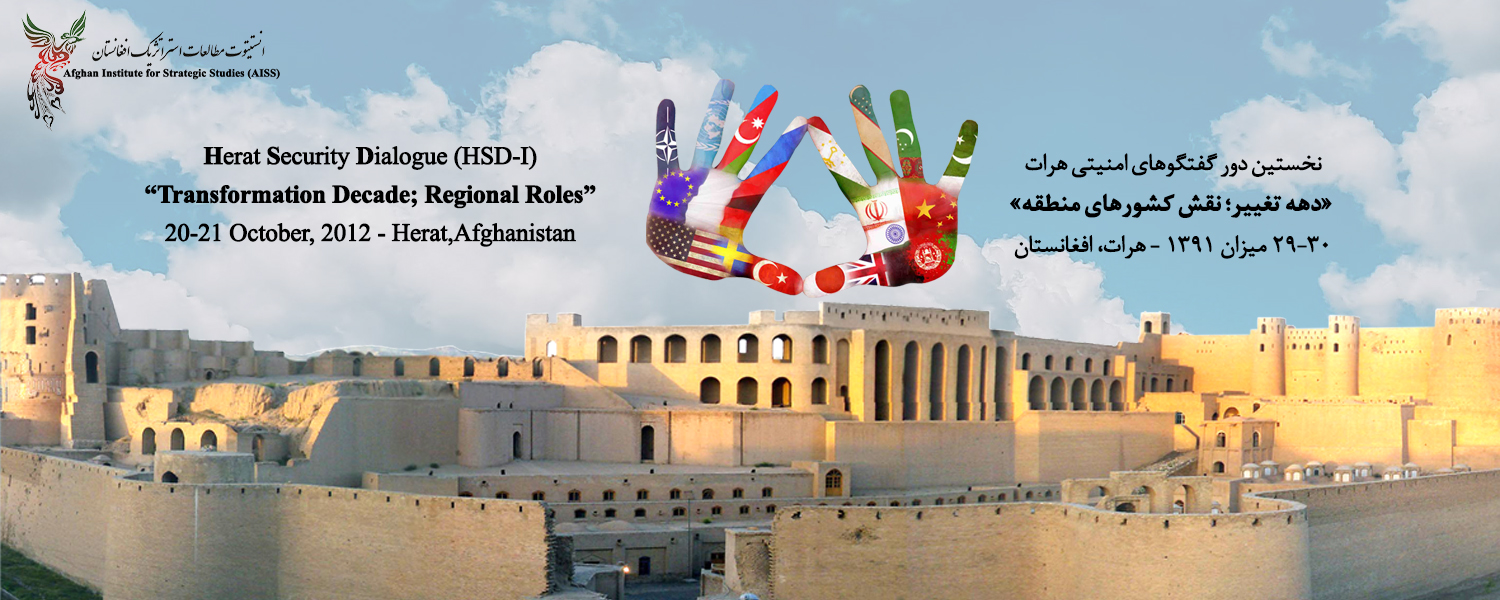Herat Security Dialogue - I
1st Herat Security Dialogue (HSD-I)
20-21 October 2012 - Herat, Afghanistan
In October 2012, Herat hosted the inaugural Herat Security Dialogue, an international conference organized by the Afghan Institute for Strategic Studies (AISS). The event brought together representatives and experts from nearly 30 countries, including Pakistan, India, Iran, and the United States, to discuss Afghanistan’s future during its Transformation Decade (2014–2024). The discussions focused on Afghanistan’s role as a connector between regions and its potential to reshape relationships that move beyond geopolitical competition.
Afghanistan’s National Security Advisor, Rangin Dadfar Spanta, outlined a vision for Afghanistan as a bridge linking Central and South Asia. He spoke of regional integration based on mutual progress and stability, urging a departure from the conflict-driven alliances of the past. Spanta emphasized Afghanistan’s aspiration to act as a sovereign nation facilitating regional connectivity rather than being defined by external influences.
Hossein Sheikholeslam, an advisor to the Iranian Parliament, shared Iran’s perspective, calling for an end to foreign military interventions in Afghanistan. He indicated Iran’s openness to engaging with both Afghanistan and the United States, contingent on the complete withdrawal of American forces. His remarks underlined the necessity of allowing Afghanistan to independently determine its political and security trajectory.
The Herat Security Dialogue shifted attention from the immediate challenges of the 2014 transition to broader strategies for the coming decade. Discussions stressed the importance of inclusive national dialogue and strengthened governance to address Afghanistan’s pressing political and economic issues. Key priorities included enhancing security, strengthening regional trade, and building sustainable economic resilience.
Participants explored Afghanistan’s potential to become a regional hub for trade, infrastructure, and cultural exchange. Afghan leaders cited cross-border projects as a means to reduce tensions and create economic opportunities. However, these conversations also acknowledged the difficulties of aligning diverse regional interests while addressing historical rivalries.
The Herat Security Dialogue stood as a platform for meaningful discussions on Afghanistan’s future. It highlighted the collective responsibility of regional and international actors to support Afghanistan’s efforts toward stability and progress. The forum outlined a vision of Afghanistan as a key partner in cultivating a collaborative and interconnected regional landscape.

